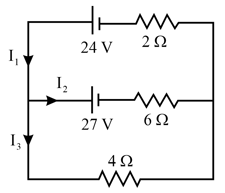MEDIUM
12th CBSE
IMPORTANT
Earn 100
A series battery of lead accumulators, each of emf and internal resistance is charged by a d.c. mains. To limit the charging current, a series resistance of is used in the charging circuit. What is power dissipated as heat? Account for the difference in the two cases.

Important Questions on Current Electricity
EASY
12th CBSE
IMPORTANT
A storage battery of emf , internal resistance , is being charged by a d.c. source, using a resistor in series in the circuit. Calculate the current in the circuit.
EASY
12th CBSE
IMPORTANT
A storage battery of emf , internal resistance , is being charged by a d.c. source, using a resistor in series in the circuit. Calculate the terminal voltage across the battery during charging.
EASY
12th CBSE
IMPORTANT
A storage battery of emf , internal resistance , is being charged by a d.c. source, using a resistor in series in the circuit. Calculate the chemical energy stored in the battery in minutes.
EASY
12th CBSE
IMPORTANT
The following graph shows the variation of terminal potential difference , across a combination of three cells in series to a resistor, versus the current, : Calculate the emf of each cell
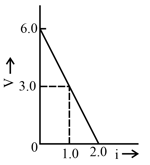
EASY
12th CBSE
IMPORTANT
The following graph shows the variation of terminal potential difference , across a combination of three cells in series to a resistor, versus the current, : For what current , will the power dissipation of the circuit be maximum?
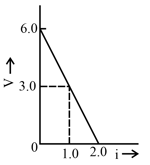
EASY
12th CBSE
IMPORTANT
Apply Kirchhoff’s rules to the loops PRSP and PRQP to write the expressions for the currents , and in the circuit shown in Fig.
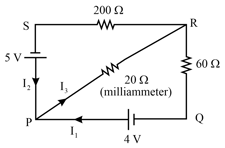
EASY
12th CBSE
IMPORTANT
Use Kirchhoff’s rules to determine the value of the current flowing in the circuit shown in Fig.
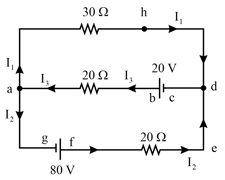
EASY
12th CBSE
IMPORTANT
Using Kirchhoff’s laws, determine the currents , and for the network shown in Fig.
